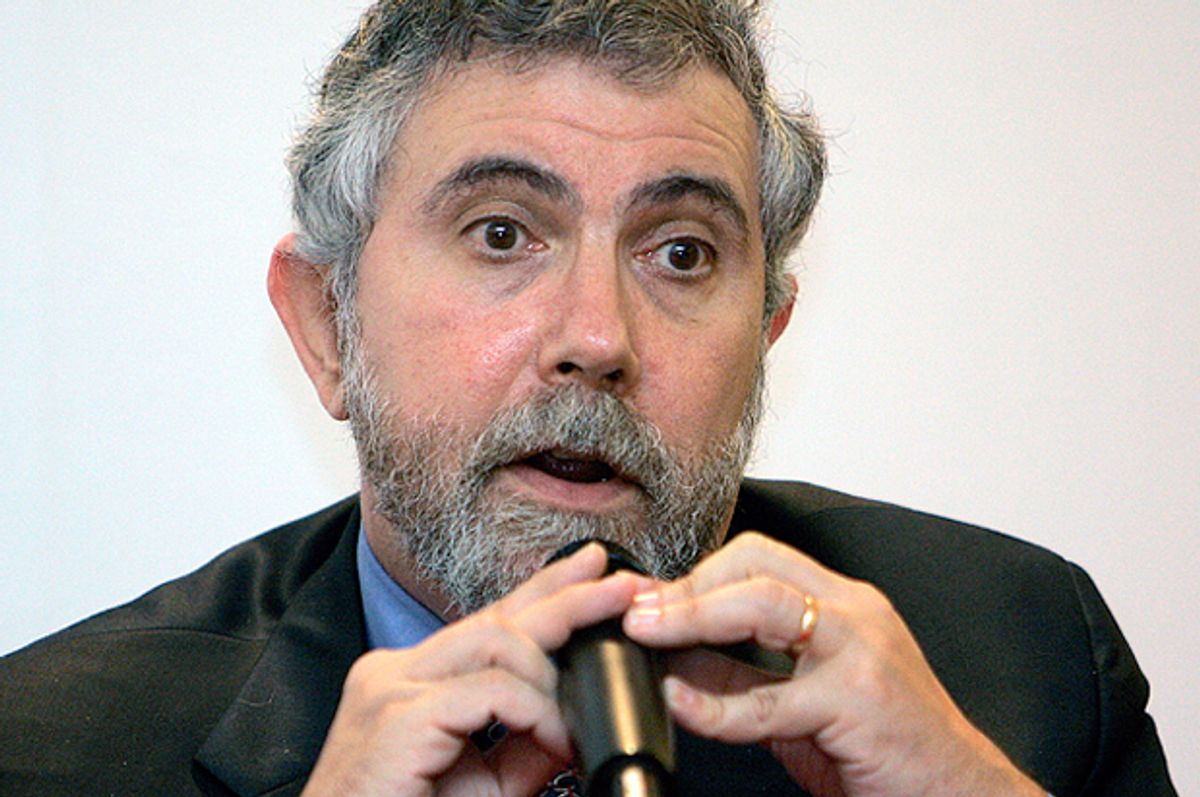When former Starbucks CEO Howard Schultz first announced he was “seriously considering” a run for president as a centrist independent, Democrats initially feared he might behave as a spoiler allowing President Donald Trump to cruise to re-election.
Over the past few days, however, that complaint has taken a backseat to complaints about Schultz as a candidate on his own merits. He doesn’t vote regularly, doesn’t know basic facts of U.S. political history, and seems to have no actual policy positions other than generically complaining about both parties (while only going into detail about his gripes with Democrats) and criticizing any policy proposal that would raise his own taxes.
While this is unlikely to be a winning platform with voters, it is nothing new in American politics. In fact, writes Nobel laureate economist Paul Krugman in The New York Times, Schultz represents a long-running, intellectually disingenuous and self-satisfied form of politics among the Beltway and upper-class — what he calls the “radical centrists.” And per Krugman, radical centrists embrace a few common themes.
“First, there’s the obsession with public debt,” Krugman writes. These fears, demonstrated by Alan Simpson and Erskine Bowles’ proposal of deficit reduction proposals in 2011, have broadly been discredited as the predicted explosion of interest rates hasn’t happened. And “true to centrist form, [Schultz’s] deficit concerns are oddly selective. Bowles and Simpson, charged with proposing a solution to deficits, listed as their first principle . . . reducing tax rates. Sure enough, Schultz is all into cutting Social Security, but opposes any tax hike on the wealthy.”
Radical centrists like Schultz and former New York City Mayor Michael Bloomberg, Krugman argues, take a predictable pattern — consistently advocating deficit reduction by cutting public programs for working people and the poor, consistently opposing tax increases on the wealthy, and consistently saying that any program that would help the common good, like Medicare for All, is too expensive because they’ve taken any number of reasonable means of paying for it off the table.
“Finally, the hallmark of fanatical centrism is the determination to see America’s left and right as equally extreme, no matter what they actually propose,” writes Krugman. “Thus, throughout the Obama years, centrists called for political leaders who would address their debt concerns with an approach that combined spending cuts with revenue increases, offer a market-based health care plan and invest in infrastructure, somehow never managing to acknowledge that there was one major figure proposing exactly that — President Barack Obama.”
Now that Democrats are proposing more progressive stances like wealth taxes and health care for all, even those these policies are broadly popular and have succeeded in other countries, the radical centrists, Krugman notes, are “downright hysterical.” Schultz, despite being on Medicare himself, calls Medicare expansion “not American,” and Bloomberg compared Elizabeth Warren’s wealth tax proposal to Venezuela, even though the U.S. already has wealth taxes for the middle class, in the form of local property taxes.
“Where does the fanaticism of the centrists come from? Much of the explanation, I think, is sheer vanity,” says Krugman. “Both pundits and plutocrats like to imagine themselves as superior beings, standing above the political fray. They want to think of themselves as standing tall against extremism right and left. Yet the reality of American politics is asymmetric polarization: extremism on the right is a powerful political force, while extremism on the left isn’t. What’s a would-be courageous centrist to do?”
“The answer, all too often, is to retreat into a fantasy world, almost as hermetic as the right-wing, Fox News bubble,” Krugman concludes. “In this fantasy world, social democrats like Harris or Warren are portrayed as the second coming of Hugo Chávez, so that taking what is actually a conservative position can be represented as a brave defense of moderation. But that’s not what is really happening, and the rest of us have no obligation to indulge centrist delusions.”




Shares